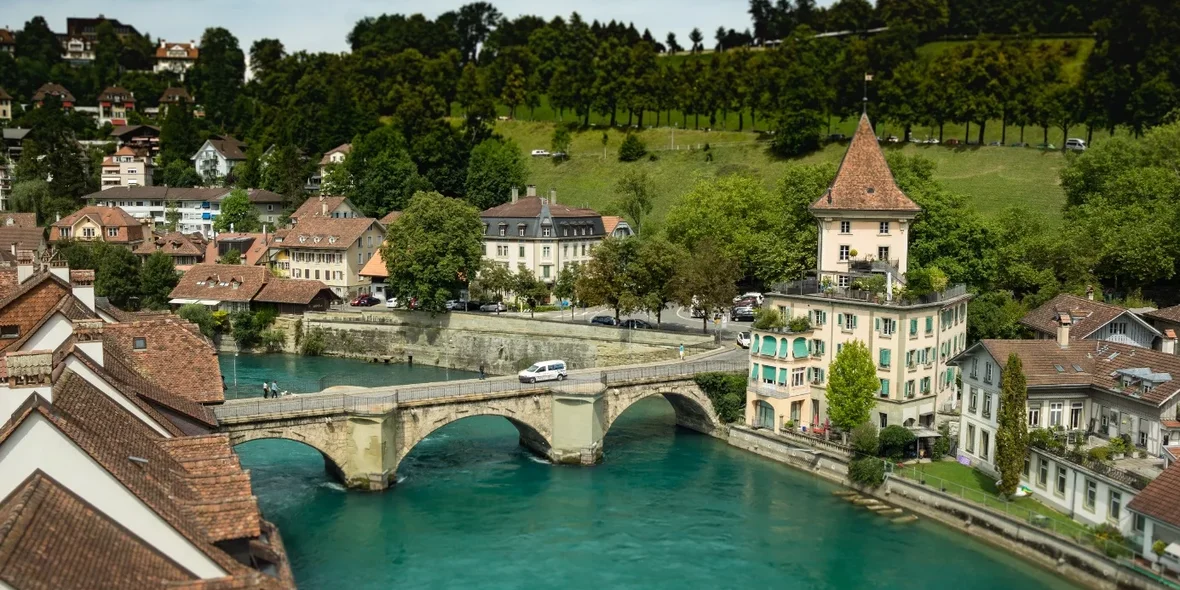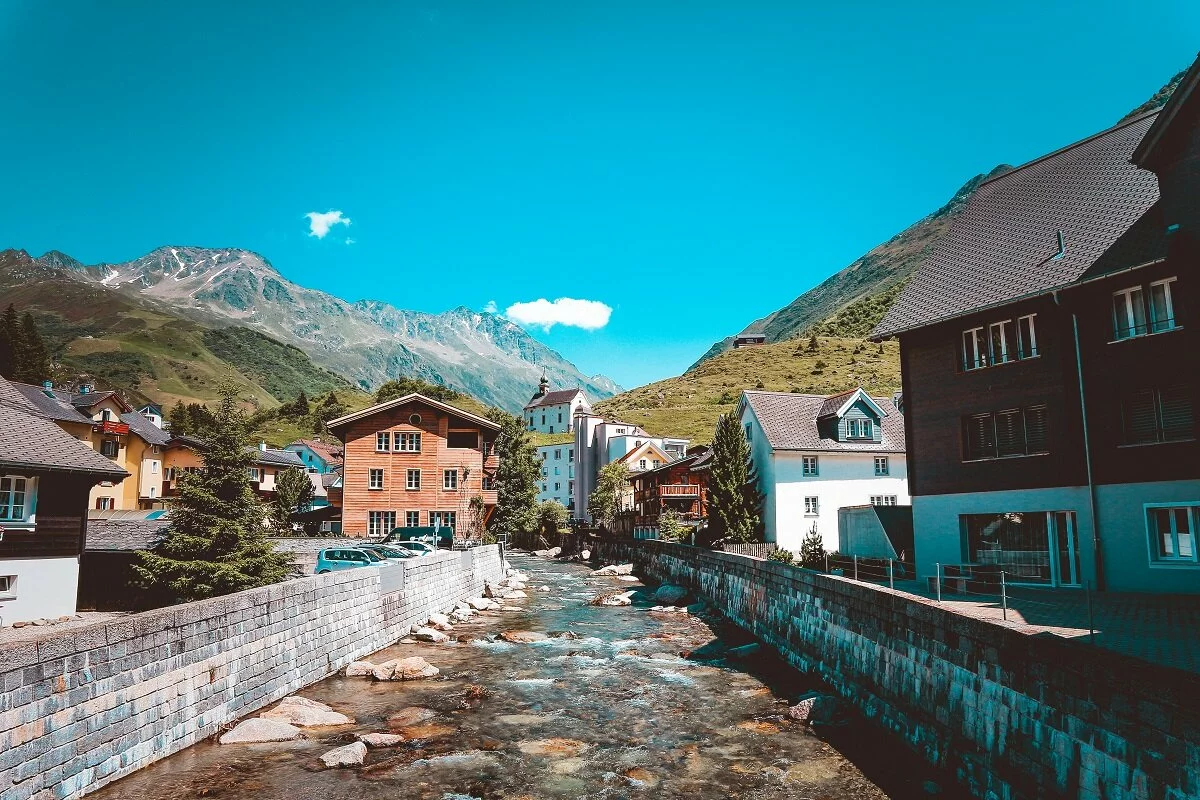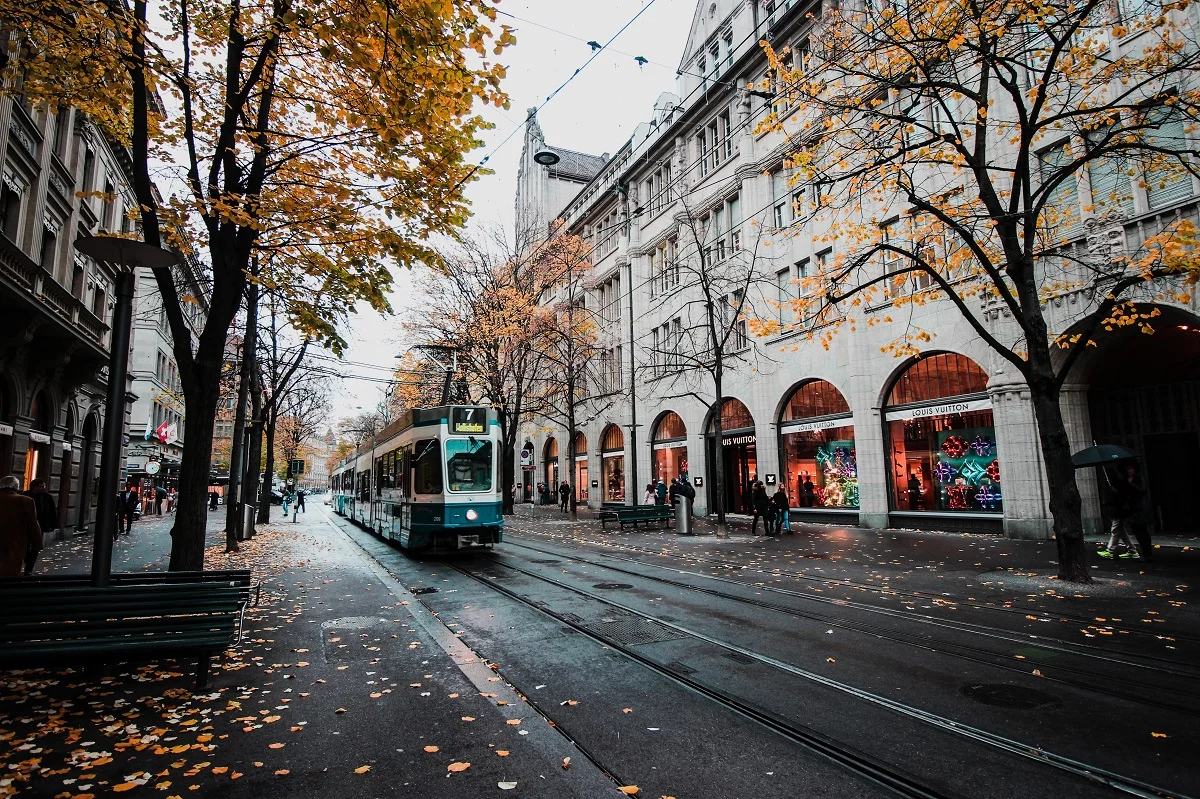
How a foreigner can buy real estate in Switzerland: a guide to buying residential and commercial properties
Everyone who has visited Switzerland at least once dreams of returning here for permanent residence. In most cases, everyone has the same goal — to buy a cozy house in an alpine meadow or a comfortable apartment in a prestigious area of Zurich. It should be noted that not all foreigners manage to make their dreams come true. This is due to the strict restrictive measures that are in force in the country in relation to non-residents planning to purchase real estate.
However, not everything is so hopeless for foreigners. It is quite possible to acquire your own house or apartment in Switzerland if you study the basic nuances of buying a home and comply with a number of conditions.
Foreign buyer rights
The purchase of real estate in Switzerland for non-residents is strictly limited. The whole process is regulated in accordance with the Federal Law of the country on the acquisition of immovable properties by foreigners. It is also known by its informal name: Lex Koller.
Before purchasing square meters in Switzerland, it is important to determine whether you are eligible for such a transaction. A number of factors will help you figure our this issue, which must be taken into account:
- whether you have a Swiss residence permit or not;
- which country you are a citizen of (an EU country or one outside of the EU);
- for what purpose the property is being purchased (permanent residence, vacation home or commercial property).
If you are planning to acquire Swiss housing for permanent residence and wish to stay in the country for more than 90 days at a time, you will need a Swiss residence permit (category B or C). This permit is required even if you have the status of an EU or EFTA citizen.
If you do not have a Swiss residence permit B or C, you will only be able to purchase commercial or holiday housing (provided that the cantonal authorities grant you prior permission to purchase).
It is also important to consider that the purchase of square meters in Switzerland does not grant you the right to a residence permit. After purchasing square meters, foreigners can only apply for a multiple-entry Schengen visa, which will allow them to stay in the country for 90 days in six months.
Acquisition of real estate for permanent residence
Citizens of the EU or EFTA residing in the country with a Swiss residence permit type B, C or L, as well as third-country nationals with a C type permit, have the possibility to buy any type of property in Switzerland without restrictions (up to a certain number of properties).
The limits apply to non-EU or EFTA citizens with a B permit. They have the right to acquire only one residential property as a permanent place of residence and only in the place where they actually reside.
In addition to housing, this category of citizens is allowed to buy land plots for building. In this case, they need to meet a number of conditions:
- a structure must be built on the land no later than a year after its acquisition;
- the property must be in the name of the buyer;
- the owner must live in the erected property personally (it is even partially forbidden to rent out the building);
- the area of the site should not be more than 3 thousand square meters. meters — if it exceeds these parameters, an additional permission will be required (restrictions do not apply to living space).
If foreigners need to change their place of residence within the country, they have the right to purchase another private house or apartment. According to the law, they can go without selling the first property: it can be used as a vacation home or rented out. In this case, the buyer must necessarily use the new purchased property for permanent residence. It is important to remember that you cannot buy multiple houses in Switzerland without prior permission from the authorities — this is considered a violation of the local laws.

Buying property as a holiday home
Citizens of the EU or EFTA with a Swiss residence permit type B, C or L, as well as citizens of countries outside the EU or EFTA, with a type C permit, have the possibility to purchase property for holidays in Switzerland without waiting for permission from the cantonal authorities.
A permit for the purchase of holiday housing in Switzerland is required for foreigners with B or L permits who are not citizens of the EU or EFTA. To obtain this document, you need to contact your local notary to submit an application on your behalf to the cantonal authorities.
The whole process can last several months and require compliance with a number of prerequisites:
- Vacation homes should be located in special tourist areas located in Appenzell, Bern, Glarus, Jura, Neuchâtel, Obwalden, Schwyz, Uri and a number of other cantons.
- A home can only be purchased if the annual quota for holiday homes for sale to foreign nationals in each canton is not exceeded. At the moment, in Switzerland, it is allowed to sell no more than 1.5 thousand recreational facilities every year. If this quota is exceeded, the foreigner must wait until the following year for authorization.
- The net living space of vacation housing should not exceed 200 sq. meters. This area calculation should include the kitchen, living room, bathroom, indoor pool and sauna. Basements, balconies, attic and stairs are not taken into account. In any case, though, the area of the site should not exceed one thousand square meters.
There are also a number of restrictions on vacation homes in Switzerland:
- Non-residents are allowed to purchase only one home per family (a family, according to local definitions, consists of a husband, wife and/or minor children). Having reached the age of 20, the son or daughter of the owner gets the right to buy a real estate object in their own name, but only on the condition of their financial independence from their parents, which must be proved.
- The house cannot be resold for 5 years after purchase.
- The owner must use the purchased property for at least 2 weeks during the tourist season. For example, in Ticino, it starts in April and ends in October.
- The owner and their family can live in the vacation home for up to 6 months a year, but for no more than 90 days per visit. If the owner wishes to stay in Switzerland for more than 3 months, they need to apply for a Swiss residence permit, even in the case of EU or EFTA citizens.
- Vacation homes are only allowed to be rented periodically — not under long-term contracts.
- The owner must move into the house no later than 2 years from the moment the corresponding entry was recorded in the land register.
- The owner cannot change the building plan without obtaining permission from the relevant authorities.
Buying commercial real estate
All foreigners, including those who do not have a Swiss residence permit, have the right to acquire commercial real estate in Switzerland for doing business without prior permission from the authorities.
You can buy:
- warehouse and production facilities;
- offices, hotels and restaurants;
- shopping centers and premises;
- doctors’ offices and workshops.
The acquired properties are allowed to be used by foreigners for doing business or leased to third parties for entrepreneurial activities.
It is important to note that building or renting a home is not considered a regular business and is strictly prohibited by Swiss law. Only EU or EFTA citizens residing in a country with a B, C or L type residence permit, as well as third-country nationals with a C type permit, have the right to purchase real estate for investment purposes. At the same time, residential premises located on the territory of the hotel are recognized as a permanent business, and therefore can be purchased or erected without permission.
Summary table: key rules for acquiring Swiss real estate for third-country nationals
| Type of ownership | With residence permit | Without residence permit |
| Residential property | Only one property can be purchased for personal residence | Buying is forbidden |
| Holiday villa/apartment | Allowed to purchase without prior consent from the cantonal authorities | Allowed to purchase in selected tourist areas if the quota is not exceeded and permission is obtained from the cantonal authorities |
| Commercial real estate | Any transactions can be concluded | Any transactions can be concluded |
Obligations of foreign buyers
As a non-resident who owns Swiss real estate, you will have to pay tax contributions to the federal government, canton and local municipality.
The list of basic taxes that must be paid includes:
- Income tax. Accrued to owners on notional income for the right to use their property. Calculated taking into account the property itself and the situation on the local rental market.
- Wealth tax. Calculated on the basis of all property owned by the owner and charged at the cantonal level. To determine the tax value of real estate, a number of its criteria are taken into account during the appraisal procedure.
- Property tax. Observed in every canton. Depends on the tax value of the property.
- Capital gains tax. Must be paid on any income that has been received from the sale of real estate. Calculated based on the price for which the property was purchased and the cost for which it was sold, minus the cost of repairs and restoration. This tax is collected by the local canton.
- Inheritance tax. Charged if the owner has inherited the property in Switzerland or received it as a gift. The tax rate is 15-55%.
How to search for property in Switzerland?
First of all, you need to get acquainted with the latest trends in the Swiss real estate market and the most profitable opportunities for investing your personal funds. Review articles about Switzerland published on thematic web portals will help you in this regard.
Then you can begin to study the proposals within the country. On the Realting platform, a special section has been created with up-to-date advertisements for the sale of real estate in Switzerland where you can find suitable options. Many interesting offers are also presented on Swiss sites, among which the most popular are Homegate.ch, Newhome.ch and Immoclick.ch.

How to buy property in Switzerland: a description of each stage of the transaction
1. Selection of a suitable property
First of all, you need to determine your purchase goals. Will you buy real estate for personal use or for rent? It is also worth considering the existing restrictions for foreign buyers. This will allow you to narrow the range of properties to study to those that you can definitely buy in the selected region of Switzerland.
In parallel with the search for real estate, it is necessary to take care of choosing a competent notary, as no transaction is possible in the country without their participation.
2. Property reservation
Having picked a property in Switzerland, the buyer must appoint a local notary who will act on their behalf and the seller’s until the final stage of the transaction.
The notary will assist in the preparation of the letter of intent between the buyer and the seller, or the preliminary agreement of the sale if the buyer needs permission from the cantonal authorities or a Swiss residence permit. The contract is important, as it sets the terms of the upcoming transaction, as well as determining the timing of payment and possible penalties. In order to reserve a property, the buyer must make an initial payment to the account of the seller or the notary in the amount of 10% of the agreed value of the property.
By concluding a preliminary sale and purchase agreement, you will receive guarantees that the owner will not sell the property to another buyer. It will only be returned to the market if the cantonal authorities do not grant you a permit. In this case, the paid contribution of 10% will be returned to you. Despite the failed transaction, you will have to pay a notary fee.
When obtaining a permit to purchase or a residence permit in Switzerland, it is necessary to take the following into account:
- If a foreign person buys a holiday home, the notary is obliged to open a LAFE, a procedure that will allow them to obtain permission from the authorities to purchase the selected immovable property. This document takes 3-4 months to process. It should be borne in mind that there is real estate in Switzerland that is being sold with an already existing purchase permit. If you plan to purchase such a property, you will not need a new permit.
- If a foreigner without a residence permit plans to move to Switzerland and purchase real estate for permanent residence, the first thing they need to do will be to obtain a B type Swiss residence permit. This document takes 8-12 weeks to be drawn up.
3. The final sales contract: formulation features
After receiving the appropriate permission, the seller and the buyer conclude the sale and purchase transaction by signing the final contract. Registration must take place in the presence of a notary — without their participation, the transaction will not have legal force. It should be noted that no more than 30 days are given to sign the contract after obtaining permission.
When drawing up the document, the foreign person signs a declaration in accordance with the Lex Koller law. At the same time, the notary certifies the buyer’s statement that they have no other real estate in Switzerland. In the next 5 years, it is prohibited to sell the purchased property.
4. The final stage of the transaction and state registration
At this stage, the buyer pays the remainder of the amount of the cost of the property as specified in the contract. The notary checks the receipts, and then makes the registration of the transaction in the land register. The entire process can take several weeks. The buyer receives full rights to the property only after the corresponding entry is displayed in the land register.
Additional expenses
The acquisition of real estate in Switzerland is accompanied by some additional expenses:
- Land transfer tax. Varies from 0% to 4% in different cantons. For example, in Lucerne this type of tax amounts to 1.5%; in Bern and Valais, no more than 1.8% of the property price. In a number of cantons (Argau, Zurich and Zug) there is no charge at all.
- Notary services. The commission is 0.025-0.7% depending on the canton. For example, in Zurich, notary services will cost 0.1%; in Bern, 0.1-0.5%.
- Realtor services. The commission varies from canton to canton, ranging from 3% to 5%.
- Mortgage registration fees. Charged on a variable scale, varying from canton to canton. For example, in Valais, mortgage registration fees start at 1% of the value of a property over CHF 200,000; from 0.8% on properties worth up to CHF 500,000, and from about 0.7% for properties valued at over a million Swiss francs.
- Registration of property rights in the land registry. It varies in different cantons, reaching an average of 0.6% (in Lucerne it does not exceed 0.2%; in Zurich, 0.25%).
Swiss property prices
Switzerland is one of the most expensive countries not only for buying a home, but also for living. This is due to the high quality of life and the fact that the Swiss receive the highest wages in the world.
The average price of a square meter in the country starts at 13 thousand euros. At the same time, the cost of housing is gradually but steadily growing every year. The dynamics were not observed only in the period from 2017 to 2019, when real estate prices decreased by 1%, 1.7% and 1.2%, respectively. This was facilitated by measures taken at the government level to cool off the market. It is also worth recalling that in 2015, Switzerland initiated a negative interest rate on deposits and introduced a floating exchange rate of the Swiss franc.
At the moment, according to the country’s national bank, the real estate market has begun to gradually stabilize. Private houses, the prices of which are growing faster than those of apartments, are in particular demand amid the pandemic. At the same time, neither the Central Bank of Switzerland and UBS exclude the formation of a «bubble» in the housing market.
Mortgages for foreign citizens
Foreigners who want to buy real estate in Switzerland have the opportunity to get a mortgage in one of the local banks, but only if they have a significant amount on the deposit or securities. This is necessary to guarantee the loan. The main banking institutions in the country that provide loans to foreigners are UBS, Migros Bank, as well as Credit Suisse and Raiffeisen.
The interest on the mortgage program for Swiss residents is approximately 1% for loans with a non-fixed rate and about 1.8% per annum for loans with a fixed rate issued for 10 years.
For non-residents, the mortgage interest is always higher. Often, mortgage loan repayment is given from 2 to 10 years. Foreign citizens can take out a loan for an amount equal to 50-60% of the purchase price of real estate. In each situation, banks consider the possibility of lending individually.

















